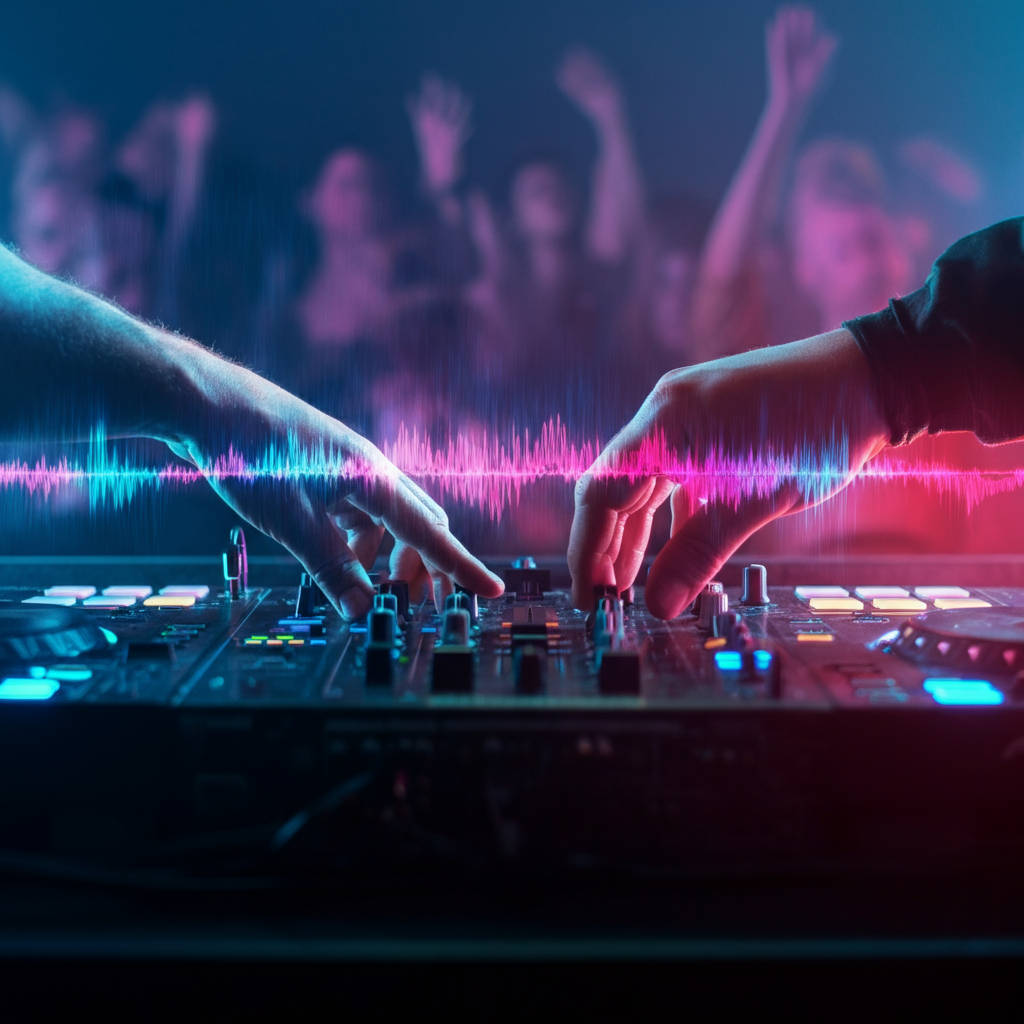
Introduction
Mixing tracks is only one aspect of the art of DJing. Captivating audiences and creating memorable musical moments is the aim of this dynamic dance between creativity, skill, and innovation. The DJ effector is one of the most important instruments for accomplishing this. This adaptable tool opens up a world of creative possibilities and enhances a set in addition to improving the sound. It plays a crucial part in contemporary DJing since it facilitates distinctive soundscapes, improves transitions, and aids in the development of DJs’ distinctive styles.
DJing is a creative industry that pushes the limits of performance and sound. The DJ effector is one revolutionary piece of equipment that stands out among the many other tools and software that DJs can use to elevate a set from mediocre to spectacular. However, what is a DJ effector, and why is it a necessity for aspiring and experienced DJs alike?
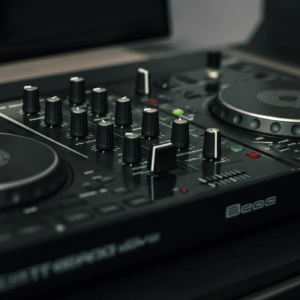
Enhancing Creativity with DJ Effectors
The foundation of any successful DJ performance is creativity. With the help of a DJ effector, musicians can add their unique touch to every track and transcend the constraints of a conventional mix. DJs are able to manipulate their sound in real time through the user-friendly interfaces of software versions or the tactile controls of hardware effectors.
Imagine a typical vocal loop that has a dramatic reverb added to it, creating an ethereal echo that spreads throughout the dance floor. Alternatively, to create tension and suspense in the audience, think about applying a high-pass filter to gradually remove a beat before a drop. With the help of these effects, a simple mix becomes a narrative, with climaxes, lows, and highs that keep listeners on edge and eager for the next move. A DJ effector turns into a tool for unadulterated expression, whether it is through delicate adjustments or dramatic changes.
A DJ’s toolkit must include effects like delay, phasers, flangers, and filters because they provide a range of auditory textures to experiment with. Custom creativity is possible with each effect. For instance, a filter adds futuristic tones to a pulsing beat, and a delay can simulate the ripple of sound bouncing around a large room. Even the most basic songs can be given new life and become as distinctive as the person operating the controls with the help of a DJ effector.
Smoother, More Seamless Transitions
Smooth track transitions are a hallmark of professional DJing and are an essential skill that guarantees the set’s energy flows naturally. Here, DJ effectors are crucial because they fill in the spaces between compositions. Reverb and echo are two examples of tools that can soften sudden changes and bring coherence where there might have otherwise been a startling change.
A DJ effector is a specialized tool or piece of software that allows DJs to add different sound effects to audio. These effects, which range from complex reverb and echo to futuristic filters and delays, are more than just accessories; they completely change the way tracks mix, transitions happen, and performances enthrall audiences. A DJ effector is capable of bringing creativity to any musical performance, transforming basic mixes into captivating soundscapes that energize both live performances and studio work.
To keep the audience interested without them noticing the change, a flanger effect, for instance, can be used to create a seamless decrescendo from the high-energy peak of one track to the rise of the next. Tracks can blend, fade in or out, or change completely thanks to effects. For DJs navigating intricate live sets that incorporate a variety of musical genres or tempos, this degree of control is crucial. The possibilities for transition work are nearly endless when using a strong DJ effector.
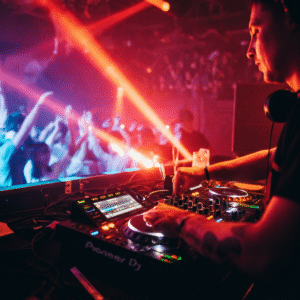
Creating Unique Soundscapes
The audience of today longs for something novel. DJs are storytellers as well as performers, creating auditory experiences that can make an impression. The instruments that make these aural journeys come to life are DJ effectors. DJs can create completely unique textures and ambiances by skillfully layering effects. A house DJ may use warm filters to create a groove-flavored atmosphere, while a techno set may use cold, metallic echoes to fit an industrial vibe.
The effector also serves as a creative lifeline for studio producers. Nowadays, a lot of DJs work as both studio and live artists. Finished tracks frequently incorporate the effects developed and performed during dynamic live performances, fusing studio accuracy with live performance inventiveness. Effectors such as the RMX-1000 even serve as a bridge between studio tools and performance equipment, functioning as a VST plugin for production software and an FX device.
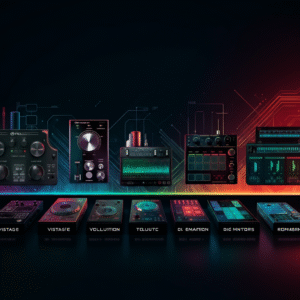
Standing Out in a Competitive Industry
It’s difficult to stand out in the fiercely competitive DJ scene of today. Audiences are increasingly searching for DJs whose sets offer a distinctive signature sound, even though technical proficiency and track selection are still important. Whether it’s characterized by inventive reverb manipulations, a lot of filters, or rhythmic delay patterns, a DJ effector gives you the ability to create that distinct style. A DJ will be recognized and remembered long after their performance is over thanks to these distinctive auditory cues that create a memorable presence.
A DJ’s technical prowess is also demonstrated by effectors. In addition to adding depth, the skillful application of sound effects is evidence of the work, talent, and consideration that go into creating a remarkable set. A performance that feels fresh and original is more likely to be enjoyed by audiences than one that sounds like hundreds of other acts.
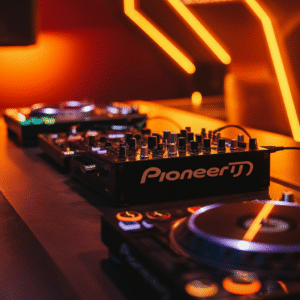
A Crucial Tool for Both Live and Studio Use
The DJ effector is the unsung hero, whether they are performing live or in the studio. It allows for real-time response and room reading during live performances, boosting the energy of the audience or lowering it when needed to rebalance the atmosphere. The accuracy of the effector, however, is advantageous for studio production. The level of control made possible by these devices is unparalleled, ranging from adjusting reverb parameters for spatial effects to determining the ideal tempo for a delay.
Because of its many uses, this tool is essential to contemporary DJing. With a DJ effector, you can experiment with beats in your home studio or energize a crowd at a packed festival. Do you want to use a high-pass filter to create tension before releasing a song? What about emphasizing a vocal loop by layering a dramatic echo effect? DJ effectors are the key to unlocking the artistic expression of DJs, who are known for their ability to shape sound in constantly inventive ways.
Effectors are used by some of the best DJs in the business, like Carl Cox and Peggy Gou, to produce unique sounds that distinguish their performances. These musicians consistently show how important effectors are in forming not just tracks but entire genres, whether they’re experimenting with hardware with the Pioneer RMX-1000 or adjusting filters on a Rekordbox setup.
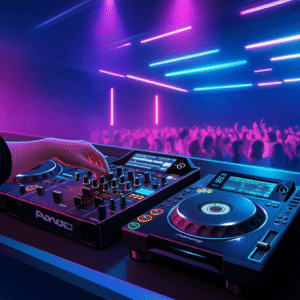
Closing Thoughts
Learning how to use a DJ effector is essential for anyone who is serious about DJing. It serves as a link between artistic creativity and technical proficiency, enhancing performances to a high standard while giving each set a unique flair. Get ready to enter a realm of limitless potential where each beat, tone, and drop can be molded into something genuinely remarkable.
The possibilities of a DJ effector are endless, regardless of your level of experience or level of deck setup.
The DJ effector is an essential tool that elevates a DJ’s abilities into artistic expression; it is much more than just an accessory. It is essential in live and studio settings due to its capacity to inspire creativity, improve transitions, and create unique soundscapes. It is now essential for DJs who want to make a name for themselves in a cutthroat field to master effectors.
The DJ effector will continue to be a source of creativity, ready to push the boundaries of what’s feasible with each performance, whether you’re creating beats in your home studio or spinning tracks in a packed club.





Leave a Reply